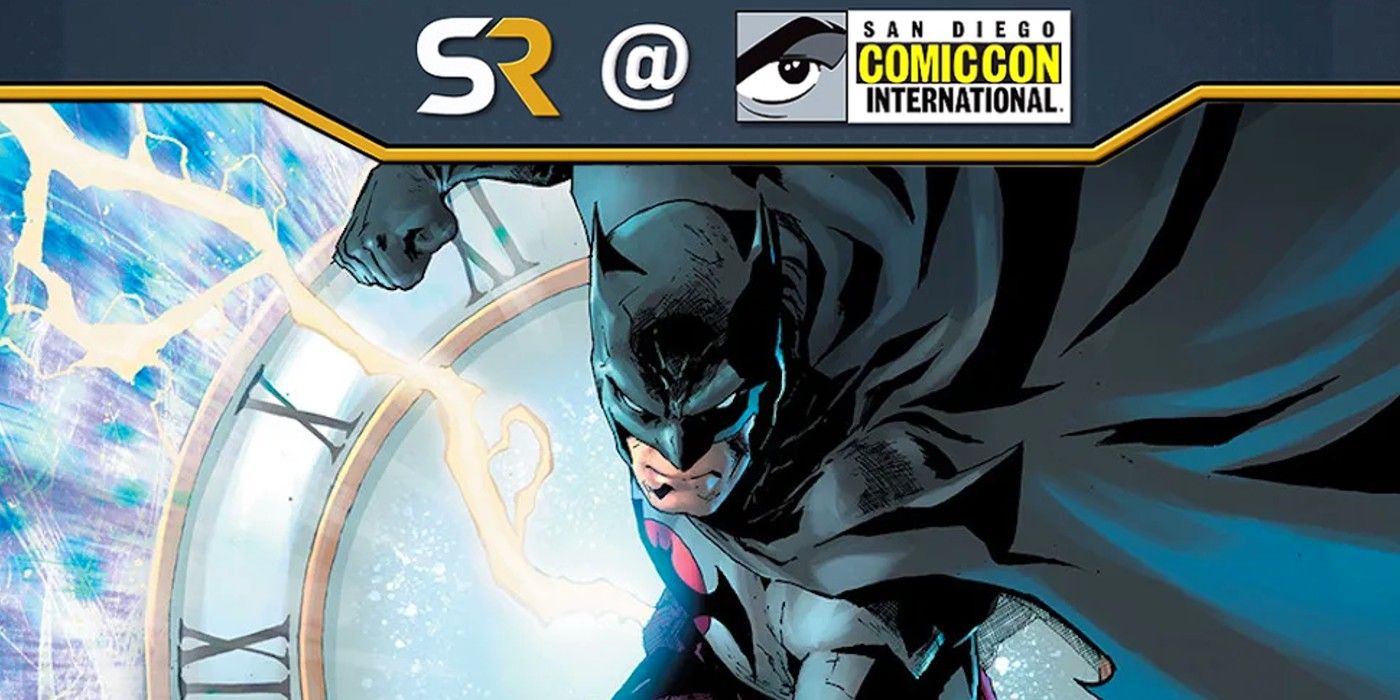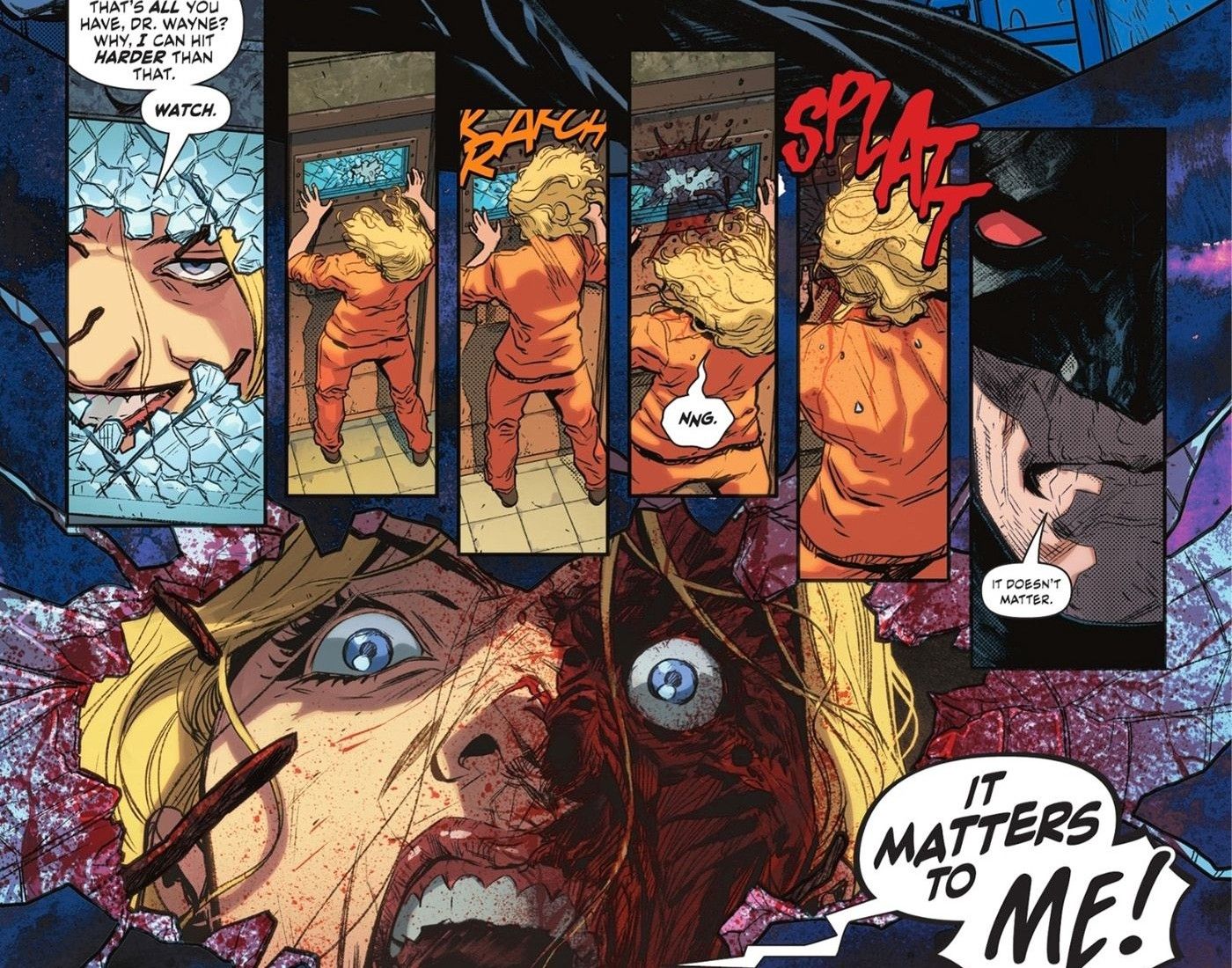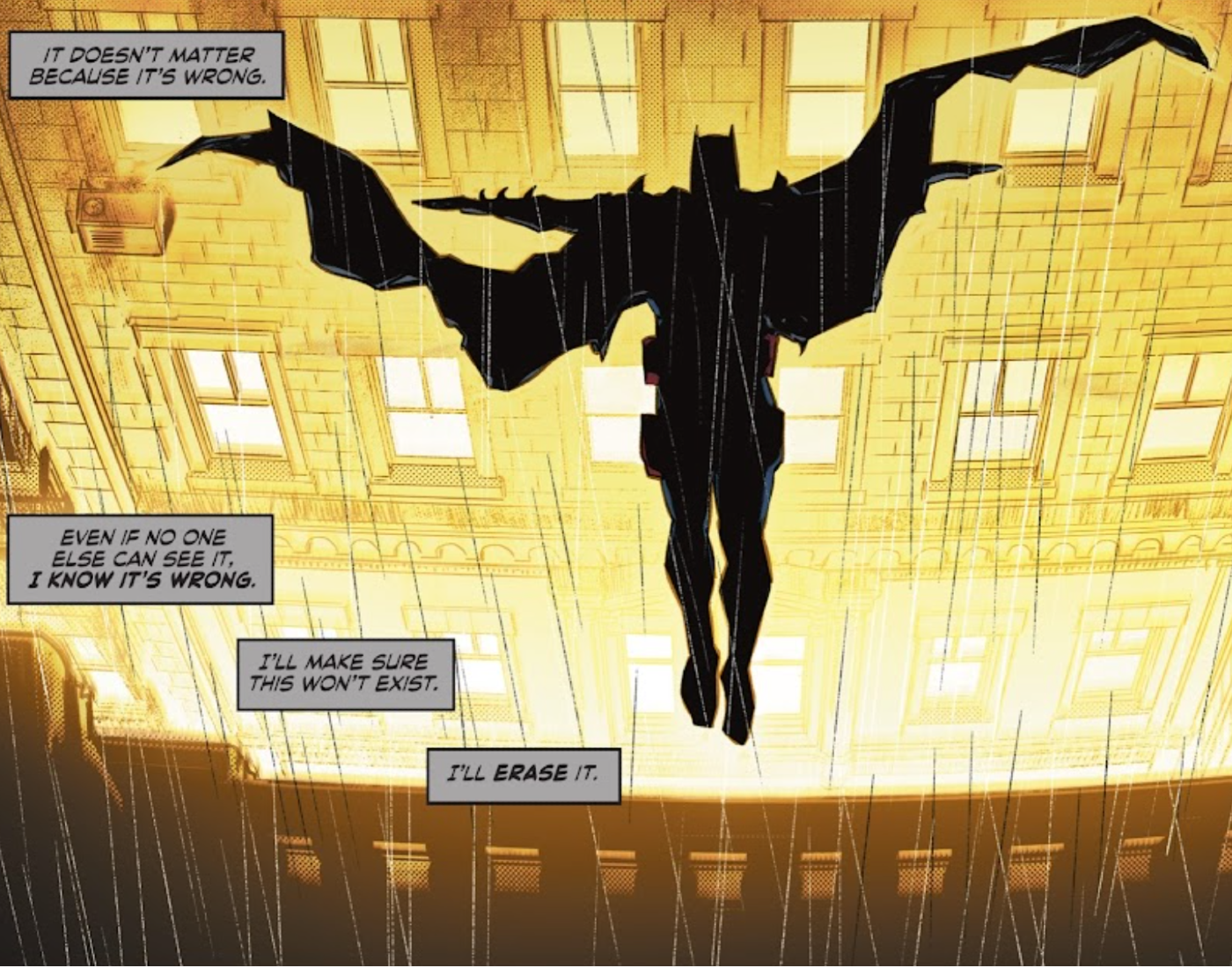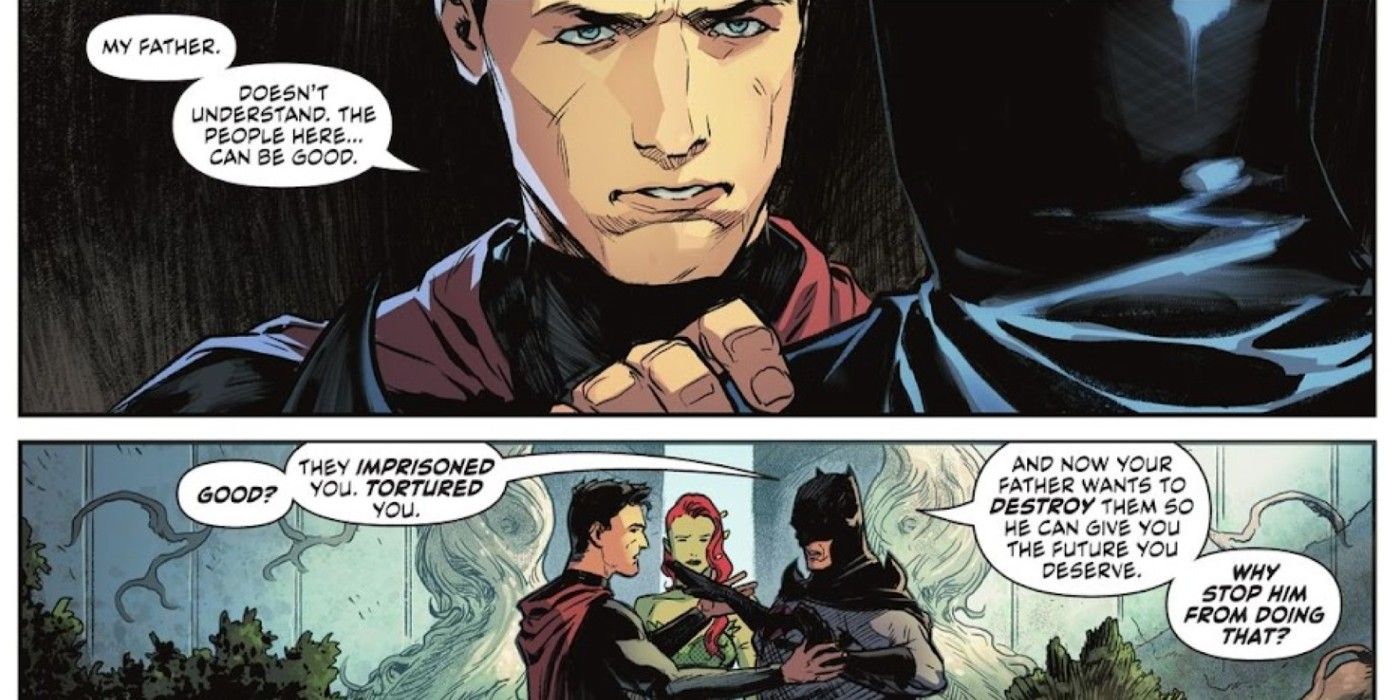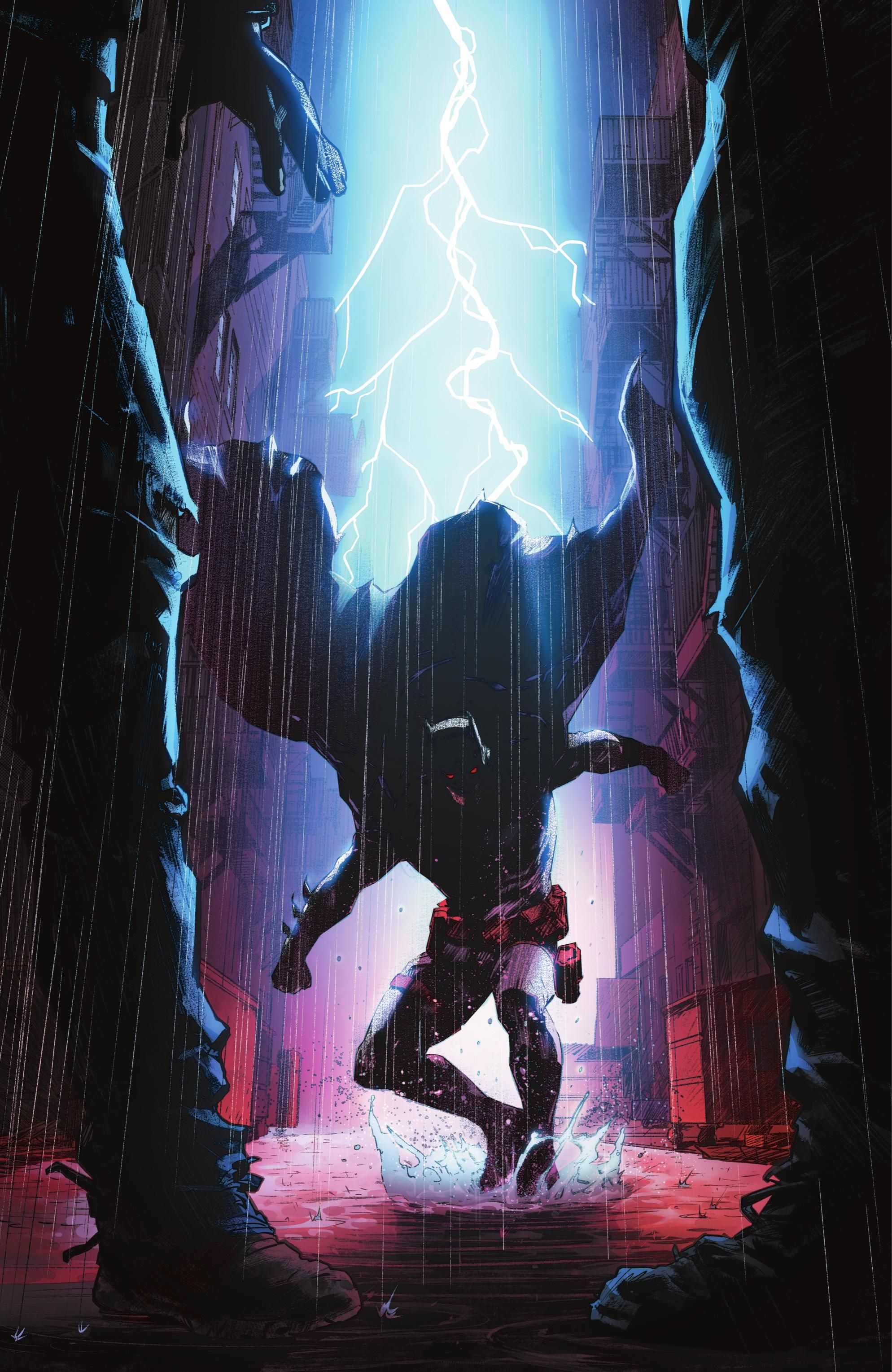The Flashpoint Beyond series from DC Comics is shaking up everything fans expect from a Flashpoint story. Written by Geoff Johns, Jeremy Adams, and Tim Sheridan, with art by Xermanico and Mikel Janín, Flashpoint Beyond strikes a crucial balance between cosmic conflicts of epic proportions and heartbreakingly intimate problems. Thus far, Flashpoint Beyond has continued Thomas Wayne's quest to understand what is going on around him, as the Flashpoint universe has come alive once again under mysterious circumstances. Coincidentally, the villainous Psycho Pirate has arrived into the Flashpoint universe, murmuring something about a "dark crisis" in his original reality.
Flashpoint Beyond is a sequel to the landmark Flashpoint crossover from Geoff Johns and Andy Kubert, which was centered around Barry Allen's Flash discovering a dark, alternate universe from DC's Earth Prime. In the Flashpoint universe, The Amazons and Atlanteans are at war, while its Super-Man has been subjected to horrifying clandestine experiments. To top it off, Flashpoint's Batman is not Bruce Wayne, but his father, Thomas Wayne, who spiraled into violence after his son was murdered in an alley. While the Flashpoint universe went away after The Flash was able to return back to his reality, it has now returned just in time for Dark Crisis on Infinite Earths. We sat down with writers Jeremy Adams and Tim Sheridan at San Diego Comic-Con to discuss the specifics of Flashpoint Beyond as a sequel, as well as how it fits into larger events in the DC Universe.
Screen Rant: There's almost like a bait and switch that goes on in the first issue. And like the first issue where you think, "Oh, it's Flashpoint, so it's gonna be this familiar Atlanteans versus Amazons thing." And then it's immediately thrown out the window with Barry Allen being killed. So what motivated your decision to keep some things consistent, but others not?
Tim Sheridan: It's tough to answer that without giving away sort of where we're going. But I think that, that it was important, because it is a Flashpoint story. It is the sequel to Flashpoint. It was important to know that we're in the same world, and that it continued. When that story ended our assumption was it's not still continuing, this world is not still moving forward. And so we wanted to show that it was still moving forward, the Amazons and the Atlanteans, and things of that nature. Because that's what's so confusing to Thomas, right, he is us in these early issues. He doesn't understand why this is the way it is. He thought he fixed it. And so to have those touchstones were important. But it's still Flashpoint, there still needs to be a twist. And the twist for us is directly related to the answer to the great mystery, which we're going to come to soon. There's a reason why there are deviations.
Jeremy Adams: We also hint at it, that's part of what's happening in the present with Batman. I know when we announced the book, and I would see people chatter online about how this was something Geoff [Johns] impressed upon us, it wasn't supposed to be just, "Oh, this is just a money grab sequel thing." That was like the furthest from our mind.
Tim Sheridan: Well, they didn't even come to us. It's not like DC came to us and said, "Can you guys do a Flashpoint?" We came to them and said, "We got this idea, and let's talk to Geoff and see if he is interested in doing something."
Jeremy Adams: Because it's his kind of thing. And, Geoff came with so much heart, because originally we kind of had some jokes, and it was like, "Oh, this would be really cool. This would be really adventurous." And I think what was great was that now it was two against one like, [Tim] and Geoff were like, "This needs to be about heart and emotion." I'm like, "Ugh," but it did, it focused us in a way of like, this has to mean something else. And it has to not just mean something else to this story. There has to be effects that reverberate out into the DC Universe as a whole. And that was kind of interesting, too. And of course, Tim and I are like, "Oh, let's do it."
Tim Sheridan: I mean, Jeremy and I as writers have different sort of things that we like.
Jeremy Adams: We have different taste levels.
Tim Sheridan: So Jeremy will absolutely lean into exciting action-packed stuff, and then give you a really heartfelt, you know, moment, but his preference, I would say is-
Jeremy Adams: Jean-Claude Van Damme.
Tim Sheridan: And if I'm left to my own devices, I will just put two people in a room talking to each other for a whole comic book, coming to terms with something. And it's the least interesting thing you've ever seen. But, they say interesting words. What's great about Geoff is he can do both of those things and loves both of those things, and sees Flashpoint as both of those things. And so he's like a showrunner or like a director in a movie. He modulates between our instincts and voices, and is able to, you know, help us craft what is essentially a Flashpoint story, which is chock full of big ideas and action and excitement, but then at its core, is really about the emotional life of our main characters and the grief and the trauma that they're dealing with, and coping with, and trying to figure out how to move beyond.
Thomas in this story is just so powerful, because he's like a reverse Inigo Montoya in a way, just so much sadder. It's just hitting differently, the difference that losing a child has versus losing a parent.
Tim Sheridan: The big tragedy of it for him, and I think why we love Thomas Wayne–even though he's not necessarily the greatest guy–but the reason why we love him is because he has a clear objective. And he had it in Flashpoint. He has it in Flashpoint Beyond. His clear objective creates the situation he wants, but it doesn't get him the thing. He doesn't get to be with his son. He's getting something by giving everything up. And it's a horribly tragic position to be in. But he's laser focused on it.
Jeremy Adams: Well, I think it's been compounded in the tragedy of Thomas, because in the first one, he didn't know if it was real. And he still never knew, right? I mean, some some things checked out. Like, you know, he does have speed powers, all this stuff. But at the end of the day, he died with the universe, but then he comes back into continuity. And it's like, not only did it work, but now I see the fruits of my labor and see what type of hero this man is. There's no greater thing, it's like, "Holy crap. Of course, my son needs to exist, because without him, all these other things." So now it's like, "I know that was real, and I know that Bruce needs to exist." It makes that mission even more important, I think.
Tim Sheridan: When we sat down originally though, it was an idea fest. So we had a bunch of different angles on what Thomas would want. Having woken up back in his universe, what does he want now, having seen and met Bruce? We kicked it around a lot. And we finally, you know, I'm sure Geoff really led us to sort of stay focused on who Thomas is. And he's not going to change all that much.
Jeremy Adams: He had a very clear vision of what Thomas was, and kind of adhering to the original version of him from Flashpoint.
Tim Sheridan: Which is kind of where our instincts were too.
Jeremy Adams: I wanted him to do the split.
Tim Sheridan: The Jean-Claude Van Damme split.
And what's so appealing to me about Thomas in this book is that, I feel like today, in media, there's a very popular trope of "What's fair is foul, and foul is fair." It's very pessimistic. But what stuck out to me a lot about Flashpoint Beyond is that it's radically hopeful. There's something very unique to that just in the general landscape. Is there anything you specifically wanted to avoid in terms of playing with this element?
Jeremy Adams: I don't know if there's something specific, I know my tastes generally move toward hopefulness. And, I do think that if we did six issues in which it was just Thomas being, you know, on a mission to change the timeline, and there was no cutting back to what's happening with Bruce, or we did bring in Super-Man, I thought the Super-Man thing was the thing that kept me just engaged in terms of like, he's still about hope. And him sitting there and just like, pumping the brakes on this mission, in a way, kind of helped me as a writer, just to get reengaged. Because when you see that stark pessimism, like "Nothing, this doesn't matter," and then suddenly this guy steps in, and he's super powerful, and he has every reason to say, "Yeah, it sucks." Instead, he's like, "No, it does matter. I'm gonna fight for it," you're just like, "Oh, my gosh, where do I sign up? I want to be part of that group."
Tim Sheridan: It's an important thing. Because, you know, Thomas, very quickly, knows his objective, and he's going for it. He's very no nonsense. It's important for him to stop and be steeped in the "why," you know, and that's the hopefulness that you're talking about. One of the things that we don't always talk about when it comes to Batman, and this is either Bruce or Thomas, is how much hope they have to have to put on that costume and do what they do. We think of them as The Dark Knight and they're lurking in the shadows and being angry at the world. But no, it it takes an incredible amount of hopefulness. And he has to be reminded of that. And I think, I think we always know that Super-Man is always the one who reminds everybody about that.
Jeremy Adams: But what's great is he still rejects it.
Tim Sheridan: Well he does, but at least now he's rejecting it from– he's been faced with knowing there's big things happening in this world that he could help with. And he's like, "I'm still focused, I'm still choosing to stay laser focused on the other thing. Because the rest of this, these cares that you have won't matter, right? Because they won't exist." It is a trick of absolution that he's playing with there. Because look, in his experience, his actual experience, is he did this, and it didn't work. So he thinks, "Yeah, none of that will matter." And yet, here we are, the Atlanteans and the Amazons, and now the Kryptonians. And these things are happening in this world. So really, ultimately, who is Thomas to say?
Jeremy Adams: And I also think that as we get further and further along for Thomas, it's like, let's hope that he's right. Because he's leaving a trail of wreckage, you know?
Tim Sheridan: Yeah. But he's resolute.
Absolutely. And so just to go back to the emotional versus action, how do you balance those moments? How this is fitting in with Dark Crisis? How do you manage all of those things at once?
Tim Sheridan: I mean, that's also a loaded question, because the action within this particular story has a lot of the things we're seeing, the things that we're seeding right now have repercussions that will affect a lot of things outside of the Flashpoint universe.
Jeremy Adams: I will tell you as somebody who really enjoys action as a craft, when [Flashpoint Beyond artist] Xermanico started sending back stuff, it was like, but I want to see him do something where the Batmobile does this or I want to see this, because he's so good at it.
Tim Sheridan: We're just nerds.
Jeremy Adams: It just was so cinematic, and in issue two, after he has the conversation with Gilda [Dent], you were so excited because you specifically wanted to harken back to a particular vibe of Batman and him landing in the alleyway with Thomas Wayne. It was like, "Ooooh," it wasn't just that it was like, here's the action scene, and if you have Batman's sidekick, it's not Bruce Wayne's sidekick. It's old man Thomas with this MMA garbage kick that just totally flattens a guy, and it's effective. And I thought, "Oh my gosh, this is so good, because he's drawing the action."
Tim Sheridan: What was it, [Detective Comics #587]? It was the Breyfogle cover where he's standing in the alley and there's lightning behind him and it's raining all over. What I loved about that cover, why it's haunted me my whole life, is because it is a perfect depiction of this thing that's about to happen. It transports you to that moment before that man is about to kick somebody's ass or something, right? We talked to Xermanico, we're like, "Can we bring back that feeling of that page?" And that page came back. It was just like, you didn't just bring it back, he just like, multiplied it by a million. It was like, oh, s***'s about to go down and that's kinetic in a way that you don't always get from a still picture in a comic book. But you feel what's about to happen.
Jeremy Adams: One of my favorite scenes is when Gilda starts smashing her head against the thing. And I was just like, "Oh, my gosh, I can feel this, I can see this." But also with your other question about, the action within the continuity of the DC Universe, what I think is really great, too, is we're also playing with different corners of the DC Universe proper, that maybe aren't being addressed right now. And it does show the absolute vastness of the DC Universe. And that's what's so cool about the DC Universe: it's like, oh, there's magic, and there's street level guys, and there's this and aliens, and there's also time and Hypertime and all that stuff. And I think that's one of the things that sets DC apart from competitors.
Tim Sheridan: But it's also a thing that sets Flashpoint apart from other stories, I think. And Geoff, right from day one, was the guy who said, "This is about heart, it's about who these characters are. And, we can fill it with a lot of fun action, and we will, but it always has to come down to their wants and needs and the balance." So balancing between big action, that was just built in, because that's part of the way Geoff sees Flashpoint. And happily, it's part of the way that-
Jeremy Adams: [To Tim Sheridan] You see those things.
Tim Sheridan: But I mean we do, like, Jeremy will give you these immense, beautiful action. He'll give you a whole issue of action. But just like sticky with, like, all the heart, you know, and you realize, "Oh, this was really about something."
Jeremy Adams: That's my life as a John Hughes fan. Yeah, you always got that last 10 minutes of a John Hughes movie when the synth starts going up and Uncle Buck's looking at you and you're looking at him, and you're like, "Oh my gosh, oh, heart."
Tim Sheridan: I'm so lucky to have you guys bringing me back from the precipice because if I'm left to my own devices, I would on every panel on every page say, "No no, listen. It's about this. This heart right here. Look at this." And then in the next panel, you're like, "Yes, I get it."
With Super-Man's "Everything matters" line, that's the perfect, and I know this is Flashpoint, but it's a perfect motto for Infinite Frontier. And now Dark Crisis On Infinite Earths.
Jeremy Adams: I think that's intentional, too. We can get so bogged down in taglines, whatever. And I think this is like an exploration and drilling down to, what does that actually mean?
Tim Sheridan: And there's a thing I get asked a lot, I'm sure [Jeremy] do[es], too. What the fans will ask is, "Now is this gonna matter? Is this going to connect to this other thing? Is that gonna matter? Because if it doesn't matter, I don't want to know about it." And I'm always kind of puzzled by it. Because I'm like, "Of course, it matters. Maybe it's not going to plot-wise connect to something. But what you're going to learn about this character in this moment, of course, it matters. All of it matters to me."
Jeremy Adams: That's where I like to live. It's like everything that's happened in the past of DC Comics matters, because I want to steal it and make another note. Like, those are the things, the unanswered questions and being able to fill in those questions, is so much fun. That's what Dark Crisis is, right? It's like, "Look what happened in, you know, Crisis on Infinite Earths and the Darkness," and Josh[ua Williamson] is like, "Wait a second," and then he pulled that into the Dark Crisis. So like, even what we're doing, even talking about the Time Masters and talking about Time Spheres and different things, or harkening back to some of Geoff's other work, everything matters. The DC Universe: if they publish it, it probably matters.
Tim Sheridan: I think, if you're a fan at all, even, the [Superman:] Man of Tomorrow movie that I did, it doesn't connect to anything in the comics. Except that it's based around ideas and things that we've seen in the comics and wanted to explore on screen, or like a LEGO Batman or LEGO Justice League movie, [to Jeremy] you've written a couple of those. Those things matter to me as a fan, because it gives me a whole new way to enjoy the characters and the situations that I love so much.
Flashpoint Beyond #3 will be available from DC Comics on August 2nd, 2022.

